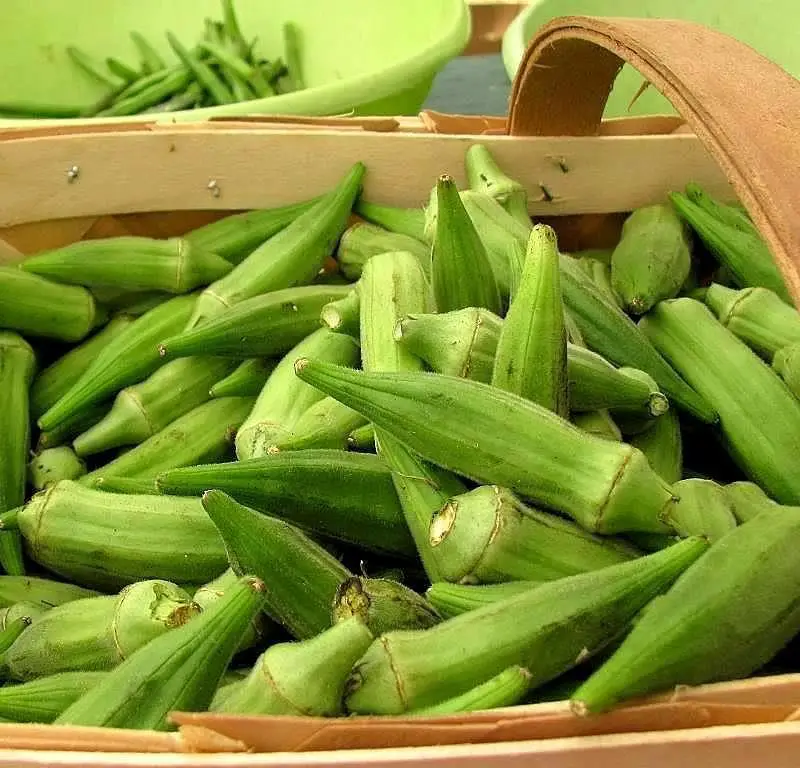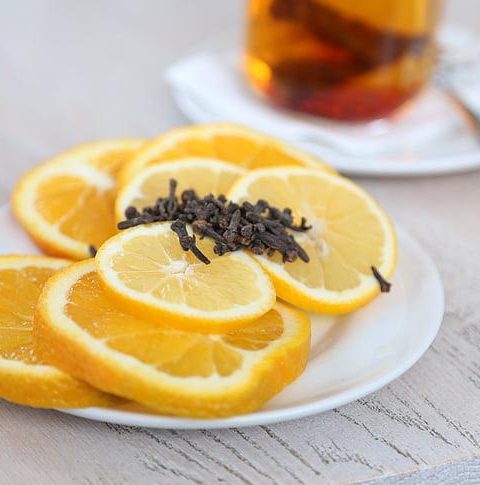There’s something oddly charming about okra. Some call it “lady’s finger,” others know it as “gumbo,” but no matter what name it goes by, this oddly shaped, slightly sticky vegetable (yes, technically a fruit!) has managed to win hearts, feed generations, and stir up debates in kitchens across the world.
Maybe your grandma stewed it into Sunday dinner, or maybe you only know it from that slimy encounter at a buffet once. Either way, okra has stories to tell—and a lot more to offer than folks often realize.
Let’s take a slow stroll through the world of okra—its history, health perks, and culinary quirks. Trust me, by the time you get to number twenty, you might just start craving a skillet full of it.
1. A Plant With Ancient Roots
Okra’s been around the block a few times. Most historians trace its origins to Ethiopia or somewhere in West Africa. From there, it traveled through Egypt, across the Middle East, and eventually to the Americas via the transatlantic slave trade. It’s not just a food—it’s a living piece of history, braided into the stories of migration, survival, and tradition.
2. More Than Just a Veggie
Here’s a fun one for your trivia nights: okra isn’t actually a vegetable. It’s a fruit—botanically speaking, anyway. It belongs to the mallow family, which means it’s cousins with hibiscus, cotton, and even cocoa. Its Latin name Abelmoschus esculentus literally means “edible.” Makes sense, right?
3. Packed With the Good Stuff
Okra might not look like a superfood, but don’t let appearances fool you. It’s loaded with vitamins A, C, and K, plus folate, magnesium, and a whole lot of fiber. One humble cup of raw okra clocks in at just 33 calories. That’s a lot of nutritional bang for your bite.
4. Antioxidant Powerhouse
You know how doctors keep telling us to eat the rainbow? Okra earns its place on that plate thanks to its rich array of antioxidants—especially polyphenols, flavonoids, and, of course, vitamin C. These little compounds help reduce inflammation, fend off chronic disease, and keep your cells feeling spry.
5. A Friend to Your Gut
If you’ve ever eaten okra and noticed things moving a little more smoothly the next day—well, that’s no coincidence. Okra’s high fiber content is great for digestion. It helps regulate bowel movements, feeds good gut bacteria, and even plays a role in stabilizing blood sugar.
6. Heart-Smart Food
Let’s talk about that famous okra slime—or as science calls it, mucilage. Turns out, this gooey goodness can actually bind to cholesterol in your digestive system and help carry it right on out of the body. That, along with its antioxidants, makes okra a wonderful support for heart health.
7. A Sweet Deal for Blood Sugar
That same mucilage can slow the absorption of sugar in the intestines, helping to keep blood sugar levels nice and steady. That’s why some studies are exploring okra’s potential role in diabetes management.
8. Bones Love It Too
With its dose of vitamin K and a little calcium, okra gives your bones something to smile about. Both nutrients are vital for bone density and blood clotting, which means okra is doing quiet work behind the scenes while you’re enjoying that stew.
9. Endless Ways to Eat It
Roasted, stewed, sautéed, grilled, or even pickled—okra’s not fussy. Toss it in a curry, crisp it up in the oven, or stir it into gumbo, where its gooeyness actually becomes a benefit (hello, natural thickener!).
Pro tip? If you’re not a fan of the sliminess, a splash of lemon juice or vinegar can help, as can cooking it over high heat.
10. Don’t Toss Those Flowers or Leaves!
Surprise! Okra’s more than just pods. The flowers are edible and mildly sweet—perfect for brightening up salads. And the leaves? Cook them like spinach or collards. They’ve got that same earthy, rich flavor.
11. Coffee… Made from Okra?
During the Civil War, when coffee supplies ran low, folks got creative. They roasted okra seeds as a caffeine-free coffee alternative. It didn’t quite catch on, but it’s a neat little chapter in okra’s story.
12. Deep Cultural Roots
Okra is at home all over the globe. In West African kitchens, it’s the star of thick, nourishing soups. In Japan, it’s often sliced thin and topped with soy sauce and bonito flakes. Across the American South, it’s practically sacred—especially when breaded and fried to golden perfection.
13. Let’s Talk About the Slime
The sticky reputation is real, but let’s give mucilage its due. That slippery texture actually contains soluble fiber, which is incredibly good for your body. And hey, with the right technique (hello, cast-iron skillet and some olive oil), that sliminess can crisp right up into something glorious.
14. Mama’s Little Helper
Okra is rich in folate, which is essential for pregnant women—especially in those early weeks when the baby’s neural tube is developing. One cup gets you well on your way toward your daily needs.
15. A Natural Cancer Fighter?
There’s early research (mostly in test tubes so far) showing that lectins found in okra may help slow the growth of certain cancer cells. It’s not a miracle cure—but it sure adds one more reason to keep eating it.
16. Going Green in More Ways Than One
Believe it or not, scientists have looked at using okra’s mucilage in wastewater treatment and even as a component in biodegradable packaging. This plant just keeps on giving.
17. Easy as Pie to Grow
Got a sunny patch of soil? Then you’ve got what you need for okra. It’s a warm-weather crop that grows fast—usually ready to pick in just 50 to 60 days. The more you pick, the more it grows, too. A win-win for backyard gardeners.
18. Naturally Hydrating
Okra is about 90% water, which makes it a hydrating food, especially helpful during those hot summer months when your body’s begging for fluids and you just can’t take another glass of plain ol’ water.
19. Skin and Hair’s Secret Weapon
Boiled okra can be pureed and used as a natural hair conditioner or skin soother. It’s moisturizing, full of antioxidants, and—bonus—free from all those unpronounceable chemicals in store-bought products.
20. A Global Love Affair
From Indian bhindi masala to Brazilian caruru, Middle Eastern bamya stews to Southern U.S. gumbo, okra plays a starring role in cuisines across the world. It’s one of those rare ingredients that manages to feel right at home wherever it goes.
Final Thoughts: A Pod With Personality
Okra might not be flashy, but it’s unforgettable. It’s a food with a story—one that stretches across continents, cultures, and centuries. It’s good for your body, kind to the planet, and deeply rooted in tradition.
So next time you pass by a pile of fresh okra at the farmers’ market or grocery store, don’t just walk on by. Take a handful home, slice it up, and let it surprise you.
Honestly? It’s one of those foods that gets better the more you know it.







